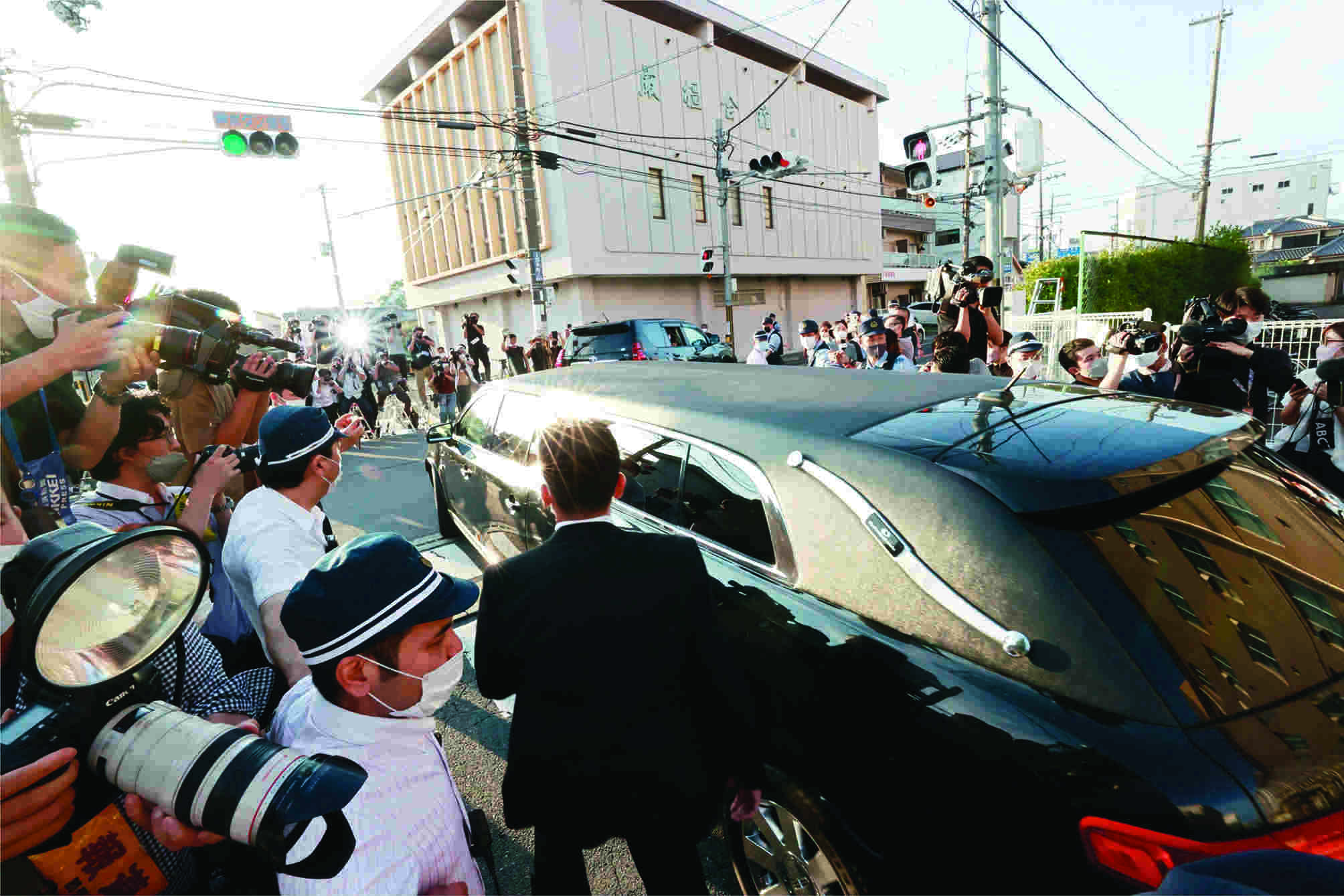Abe's death raises security questions as Japan mourns

TOKYO: A top police official on Saturday acknowledged possible security lapses that allowed an assassin to fire his gun into former Japanese Prime Minister Shinzo Abe while he was addressing a campaign rally, raising questions how could the attacker get so close behind him.
Abe was shot in the western city of Nara on Friday and airlifted to a hospital but died of blood loss. Police arrested the attacker, a former member of Japan's navy, at the scene. Police confiscated his homemade gun and several others were later found at his apartment.
The attacker, Tetsuya Yamagami, told investigators he acted because he believed rumors that Abe was connected to an organization that he resents, police said. Japanese media reported that the man had developed hatred toward a religious group that his mother was obsessed about and that caused his family financial problems. The reports did not specify the group.
On Saturday, a black hearse carrying Abe's body and accompanied by his wife, Akie, arrived at his home in Tokyo's upscale residential area of Shibuya. Many mourners, including top party officials, waited for his remains and lowered their heads as the vehicle passed.
Nara prefectural police chief Tomoaki Onizuka said Abe's assassination was his "greatest regret in a 27-year career.
I cannot deny there were problems with our security, Onizuka said. Whether it was a setup, emergency response, or ability of individuals, we still have to find out. Overall, there was a problem and we will review it from every perspective.
Abe's assassination ahead of Sunday's parliamentary election shocked the nation and raised questions over whether security for the former prime minister was adequate.
Some observers who watched videos of the attack noted a lack of attention in the open space behind Abe as he spoke.
A former Kyoto prefectural police investigator, Fumikazu Higuchi, said the footage suggested security was sparse at the event and insufficient for a former prime minister.
It is necessary to investigate why security allowed Yamagami to freely move and go behind Mr. Abe, Higuchi told a Nippon TV talk show.
Experts also said Abe was more vulnerable standing on the ground level, instead of atop a campaign vehicle, which is usually the case but was reportedly unavailable due to his hastily arranged visit to Nara.
Given that Abe's security team may face serious questions, it's important to mention that fatal gun violence is virtually unheard of in Japan, and most Japanese go through life without ever handling, or even seeing, a real gun. Stabbings are more common in killings.
Major universities have rifle clubs, and Japanese police are armed, but gun ownership rights have been a distant issue for decades. Even police rarely resort to firing their pistols.
With a population of 125 million, the country had just 10 gun-related criminal cases last year, resulting in a single death and four injuries, according to police. Eight of those cases were gang-related.
The densely populated capital of Tokyo had zero gun incidents, injuries or deaths during that same year, although 61 guns were seized there.
"Japanese people are in a state of shock, said Shiro Kawamoto, professor at the College of Risk Management at Nihon University in Tokyo.
This serves as a wake-up call that gun violence can happen in Japan, and security to protect Japanese politicians must be re-examined, Kawamoto said. To assume this kind of attack will never happen would be a big mistake.



